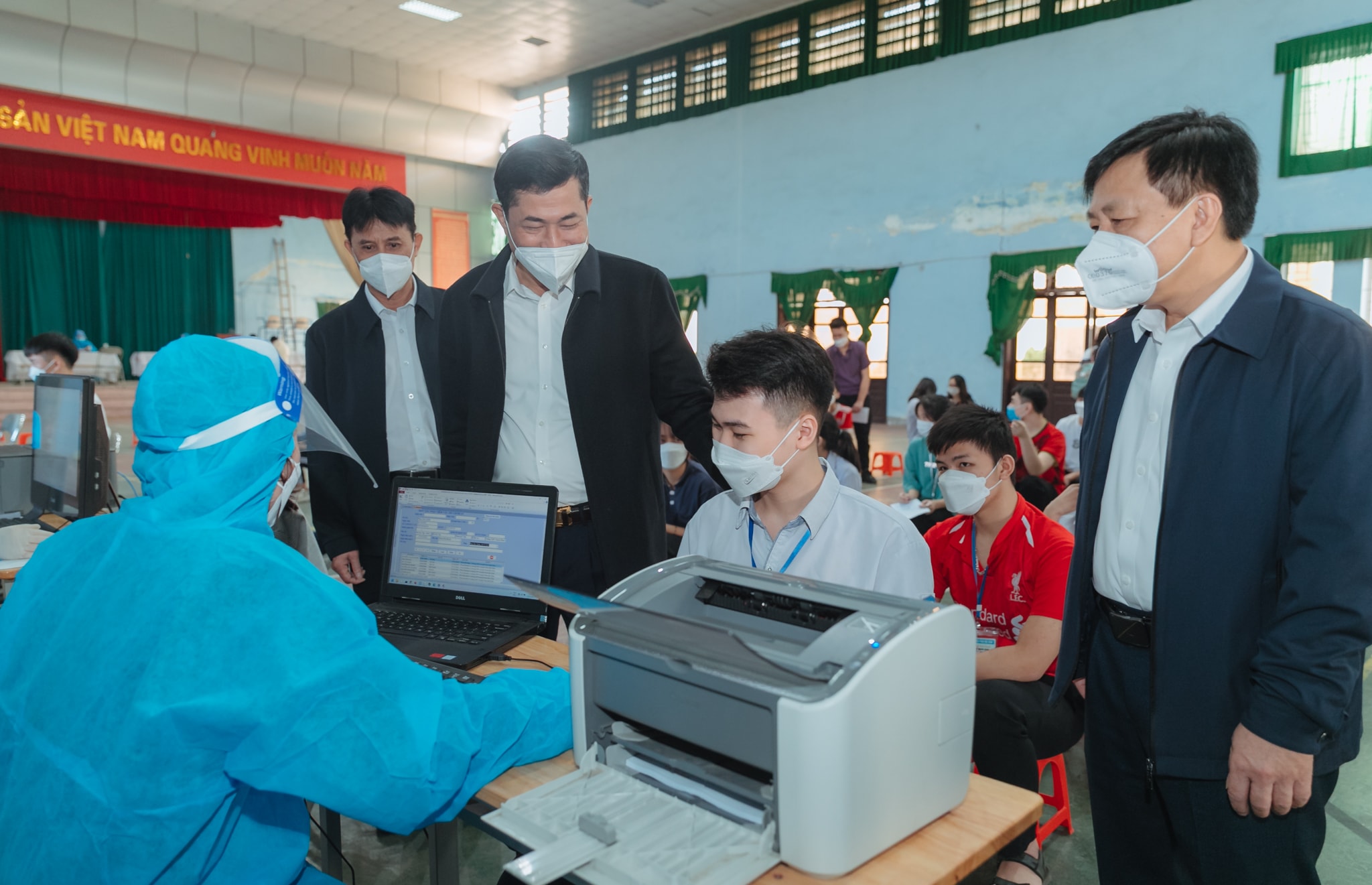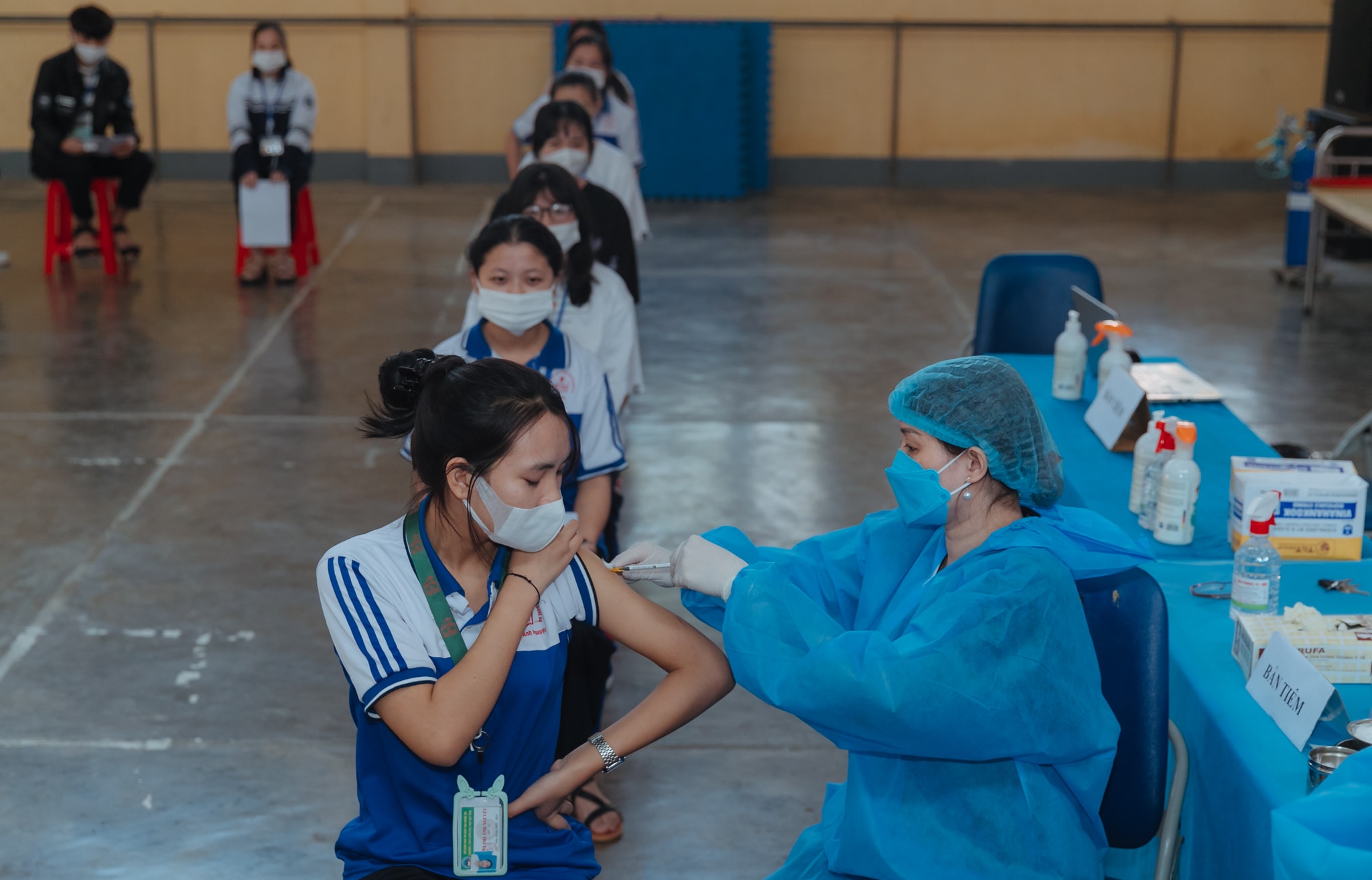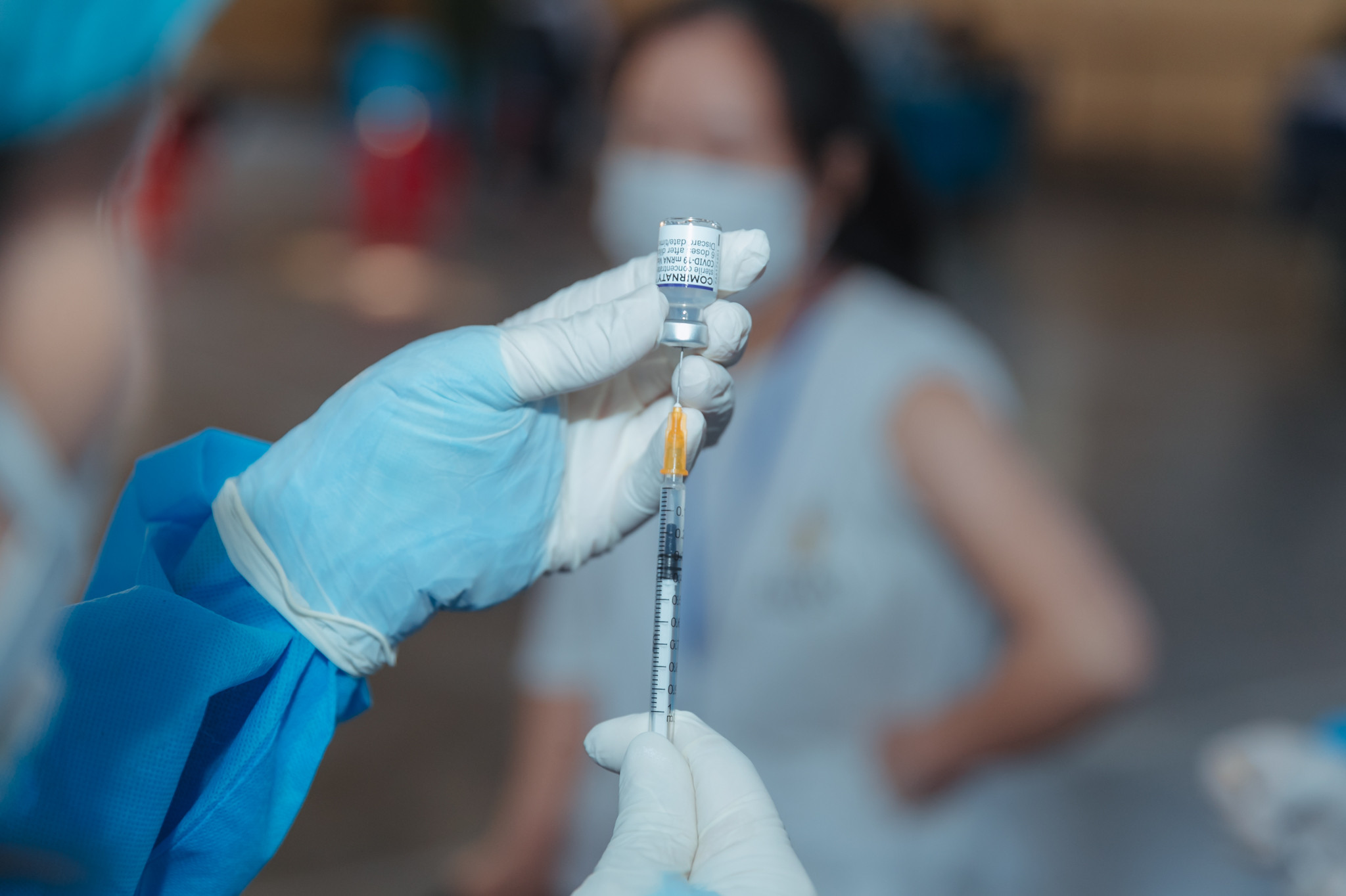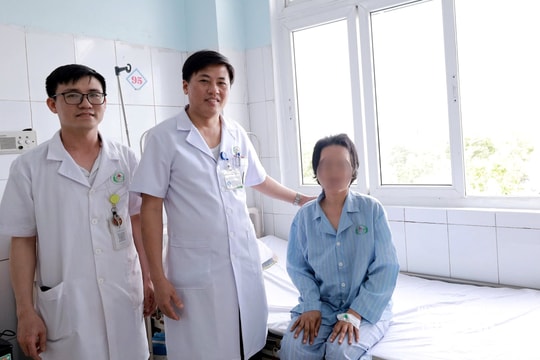Things parents need to know when taking their children to get vaccinated against Covid-19
(Baonghean.vn) - Currently, there are many questions related to vaccination for children, along with a lot of inaccurate information shared on social networks, causing parents to easily misunderstand.
On November 27, localities in Nghe An simultaneously vaccinated students against Covid-19. This was the first day Nghe An launched a campaign to vaccinate children against Covid-19. Vaccination of children against Covid-19 is important, first of all to protect children's health in the context of the pandemic that is still complicated, and at the same time to contribute to increasing the coverage of Covid-19 vaccination in the community. However, there is currently a lot of inaccurate information related to vaccination of children, along with questions that need to be answered by parents.
 |
| Leaders of the Department of Education and Training of Nghe An province inspect the vaccination work for children. Photo: Duc Anh |
What should autistic and hyperactive children pay attention to when getting vaccinated?
According to the Autism Society of America (ASA), Covid-19 has been devastating for the autism community and the intellectual disability community. In fact, people with autism spectrum disorder (ASD) are 3 times more likely to die from Covid-19, while this number is about 2.7 times higher for people with intellectual disabilities. The main reason is that these subjects often self-isolate, do not need to share symptoms or do not follow safe epidemic prevention measures.
Children with autism or hyperactivity need to be vaccinated against Covid-19. According to the Ministry of Health's instructions, after vaccination, the vaccinated person, especially children, needs to have a guardian 24/24h for the first 3 days and continue to be closely monitored for 28-42 days to promptly detect abnormal symptoms and handle them when necessary.
What type of vaccine is used to give to children over 12 years of age?
The US Food and Drug Administration (FDA) has authorized the emergency use of the Pfizer vaccine for children over 12 years old. The vaccine is given in two doses 21 days apart. The second dose can be given six weeks after the first dose. The study found the Pfizer vaccine to be 100% effective in preventing Covid-19 in children aged 12 to 15. It was also 91% effective in preventing severe Covid-19 in people aged 16 and older, including the Delta variant.
What should parents do when taking their children for vaccination?
According to experts, parents need to talk to their children about possible reactions to vaccination before vaccination. Talk to medical staff at the vaccination facility about any allergies that their children have. Encourage children before, during and after vaccination.
 |
| Vaccination for high school students in Vinh City on the morning of November 27. Photo: Duc Anh |
What side effects can occur after the injection?
The arm where the shot was given may be painful, red, and swollen. Side effects throughout the body include fatigue, headache, muscle aches, chills, fever, and nausea.
According to doctors, after the injection, children should stay at the injection site for about 30 minutes for monitoring so that the medical team can intervene promptly if there is a reaction to the vaccine. Similar to adults, side effects in children usually last from one to three days. These reactions can affect daily activities and disappear after a few days. Some children do not experience side effects.
Parents should talk to their doctor about using pain medication and other steps to reduce vaccine side effects. Pain medication should not be used before vaccination to prevent side effects.
Can vaccines affect fertility or menstruation?
One study found that some women experienced temporary changes in their periods after getting the shot. It is unclear whether the vaccine causes these changes, as further research is lacking. Many factors can affect your menstrual cycle, including infections, stress, sleep problems, changes in diet or exercise.
According to doctors, there is currently no evidence that the Covid-19 vaccine affects the puberty process or the future fertility of children (including both boys and girls). The Covid-19 vaccines licensed for use have been tested by the World Health Organization (WHO) for safety and good immunogenicity, and are used to vaccinate children in many countries.
 |
| The study found that the Pfizer vaccine was 100% effective in preventing Covid-19 in children aged 12 to 15. It was also 91% effective in preventing severe illness with Covid-19 in people aged 16 and older, including the Delta variant. Photo: Duc Anh |
Vietnam is deploying Pfizer's Covid-19 vaccine for children. This vaccine uses mRNA (genetic material), mRNA only penetrates the cytoplasm, not the cell nucleus, so it does not affect chromosomes, and does not pose a risk of causing genetic mutations that affect fertility. The American Academy of Pediatrics also scientifically rejects information that the Covid-19 vaccine has a risk of causing infertility in children.
Should I apply heat, ice or roll an egg to reduce swelling at the injection site?
According to experts, swelling at the injection site is a normal reaction of the body showing that the child's immune system is responding to the vaccine. Cold compresses can be applied when the injection site is slightly swollen. However, doctors recommend that families should ensure that they use ice made from clean water, wrapped in a clean towel and applied around the injection site, not pressing the ice directly on the injection site. Absolutely do not apply any foreign objects to the injection site.
In addition, parents can apply some simple ways to help their children reduce pain at the injection site such as:
- After the injection, keep the child at the vaccination site for observation for another 30 minutes, continuously monitor to assess any unusual reactions in the child. Immediately notify the nearest medical staff if any abnormalities are detected in the child.
- Children with mild fever (below 38 degrees) do not need to take antipyretics but continue to monitor the child's temperature and general condition. If the child's temperature is higher, consider using antipyretics if the child is uncomfortable, in pain, or has a history of febrile convulsions.
- Use a warm towel to apply or wipe the child's body, especially in certain areas such as hands, feet, armpits...
- Wear loose, sweat-absorbent clothing. Do not cover yourself with a blanket as this will increase your body temperature.
Can bathing after injection reduce fever?
Bathing in hot water helps the body relax and sleep better. After vaccination, children often have some side effects such as muscle fatigue or fever, making the body feel very tired and uncomfortable. Bathing in hot water helps the muscles relax, clean, and the spirit more comfortable. However, when bathing, avoid rubbing the injection area to avoid pain and damage to the injection area. Children should also not soak in water for too long. After bathing, dry the body and hair to avoid catching a cold if they have a fever.
It is important to monitor the child's health after the Covid-19 vaccination. If the child has a mild fever (below 38 degrees), there is no need to give antipyretics, but continue to monitor the temperature and general condition. Use a thermometer to monitor the child's body temperature. If the child has a fever above 38.5 degrees, antipyretics can be used. If this condition persists and does not respond to medication, the child should be taken to the nearest medical center for monitoring and treatment of post-vaccination reactions. The thermometer must be accurate. If you doubt the accuracy of the thermometer, try measuring it with someone around you or use another thermometer.
Still have to comply with 5K after full injection
Health authorities have repeatedly warned that after receiving the full dose of Covid-19 vaccine, parents can rest assured, but vaccinated children can still be infected if exposed to a source of infection. Therefore, after receiving the full dose of vaccine, children should still follow the 5K and ensure daily hygiene.




.jpg)

.jpg)

